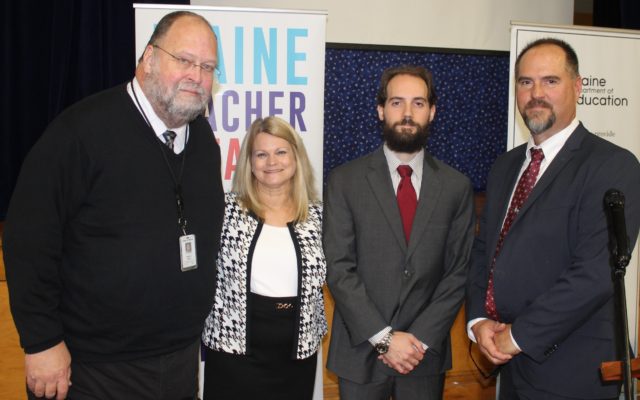
Teacher strikes are a last resort. Here’s how to avoid them.
Maine has a proud tradition of union work in both its public and private institutions. More broadly, throughout their existence in the United States, the collective actions of unions, including occasional strikes, have helped to ensure safe work environments for individuals and viable products for the entire country. And, while the strikes in the early part of the 20th century are lauded due to their influence in abolishing unfair work practices including workplace discrimination, a dearth of worker’s rights, and unregulated number of hours worked per week, collective memory can be blurred over time. Unions today are often derided, even when they might serve the public interest.
One such manifestation of this derision is the express prohibition of public workers, including teachers, from striking in the state of Maine. As legislation currently under consideration, LD 900, asserts, we can all agree that essential public services must be provided and that children need to be educated, and from a purely logistical standpoint, a strike would temporarily inhibit that goal. What is more, in our current state of food insecurity and underemployment, many children depend upon school for far more than academic learning.
If public servants feel the situation is grievous enough (i.e. unsafe, under-funded, under-resourced), and all other options for improvement through the proper channels have been exhausted, how else might society be called into collective action? How serious would the chasm between resource and need have to be to compel professionals who have dedicated their careers to educating young people to interrupt that public service with a strike?
Fortunately, we are not presently in such a position. As Gov. Janet Mills mentioned in her State of the State address, “We are not Washington [D.C.]. We are Maine.” Nor are we Oklahoma, West Virginia, Kentucky, Colorado, or Southern California, where large teacher protests have taken place recently.
Good things are happening in Maine’s schools in spite of adverse circumstances, from the Transforming Rural Experience in Education program in Washington County, to the Positive Action Team initiative in Piscataquis County, to the Aspire Gorham program in Cumberland County, to the impressive array of Career and Technical Education programs throughout the state. Meeting the increased needs of students and these programs requires an impressive amount of support. If that were to come into question, the essential public service needs to be able to respond.
Nonetheless, it is tempting to focus on those recent examples of teacher’s union action where compensation and benefits were at the forefront. Indeed, we do need to ensure that education is a solidly middle-class profession with competitive healthcare and a dignified retirement. If we do not, we will continue to struggle to recruit young and/or first-generation college graduates into the profession, and we will be unable to sway second-career and CTE instructors away from competitive fields in the private sector.
However, the California, Colorado, West Virginia, and Oklahoma protests were equally or more about adequate school supplies and curricular materials, classroom safety, student-teacher ratios, physical infrastructure, and other necessities that had not been prioritized in those states, as was the case in Florida just weeks ago. And, while our challenges in Maine may seem tame by comparison, our vigilance and cooperation is the only formula that will keep Maine ahead of the pack in this regard.
I, for one, would and will be extremely disappointed if a teacher’s strike ever were to happen. It would mean that all other options for cooperation were exhausted, and that a schism or impasse had befallen mutually interested, publicly-minded groups with clear no path forward. The right to strike, in this scenario, would be the crucial way to hold up our collective commitment to Maine’s schools, our students, and our communities. A strike, as a fail-safe, would be a last resort — one to hold the public and its public services accountable to one another in order to work toward a swift and effective resolution.
Hennessey is an English teacher at Piscataquis Community High School. He was the 2019 Maine Teacher of the Year.
